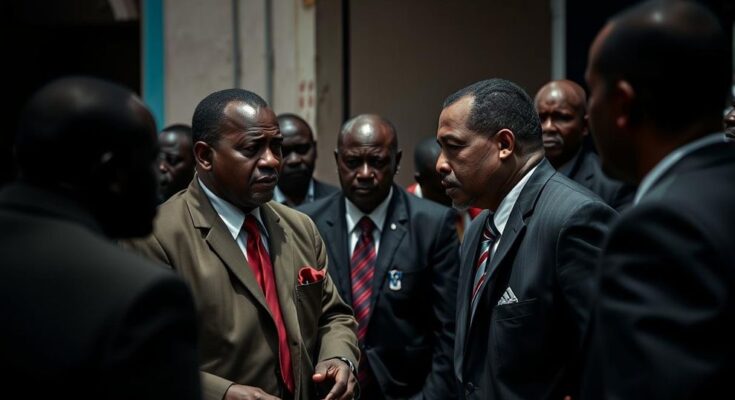Tensions within Haiti’s government have escalated over the demand to dismiss Foreign Minister Dominique Dupuy due to her handling of relations with the Dominican Republic regarding deportations of Haitians. Prime Minister Garry Conille has resisted calls for her removal, leading to a political standoff. The situation is exacerbated by the absence of parliament, complicating the authority on ministerial dismissals. Dupuy remains firm despite pressure, pointing to her achievements in advocating for Haitians.
In Haiti, tensions have emerged within the ruling government regarding foreign policy towards the Dominican Republic, particularly surrounding the expulsion of thousands of Haitians. Members of the Presidential Transitional Council are demanding the dismissal of Foreign Minister Dominique Dupuy, accusing her of taking an excessively firm stance on the matter. During a meeting, council members urged Prime Minister Garry Conille to remove Dupuy, who they claim has lost their confidence. However, Conille has resisted their calls, leading to a political stalemate. Council President Leslie Voltaire declared that the council possesses the votes to remove Dupuy and threatened to withdraw from meetings until this occurs. A scheduled meeting was canceled as Conille intends to address his cabinet regarding a resolution condemning the Dominican Republic’s deportations. The ambiguity around who has the authority to dismiss a minister complicates the situation, especially given the absence of a sitting parliament. This has contributed to ongoing procedural changes within the council to reflect the shifting majorities. During discussions, Conille asserted the constitutional separation of powers, supporting Dupuy by highlighting her recent achievements, such as securing military supplies and international support against the Dominican deportations. Despite the pressure from the council, Dupuy remains resilient, emphasizing her commitment to dialogue and collaboration. In a previous meeting of the Organization of American States, Dupuy’s accusations of “ethnic cleansing” against the Dominican government gained mixed reactions. The situation raises questions about the locus of foreign policy authority within the Haitian government, evidenced by contrasting diplomatic communications from Dupuy’s ministry and the presidential council.
The current political strife within Haiti’s transitional government stems from the complex and contentious relationship with the Dominican Republic. This has been a persistent issue, particularly due to the Dominican government’s policies involving the mass deportation of Haitians. These circumstances have heightened internal government tensions, ultimately leading to demands for the removal of foreign minister Dominique Dupuy. The lack of a functioning parliament further complicates governance and accountability mechanisms, contributing to uncertainty about the authority over ministerial appointments.
The ongoing conflict within Haiti’s government reflects deep political divisions and raises critical questions about leadership in the face of humanitarian crises. As Prime Minister Garry Conille stands firm behind Foreign Minister Dominique Dupuy, the demands from the Presidential Transitional Council reveal a fracture in trust and governance. The outcome of this standoff not only influences the future of Haiti’s foreign policy but also affects the nation’s ability to respond to pressing humanitarian challenges amid tensions with the Dominican Republic.
Original Source: www.miamiherald.com




